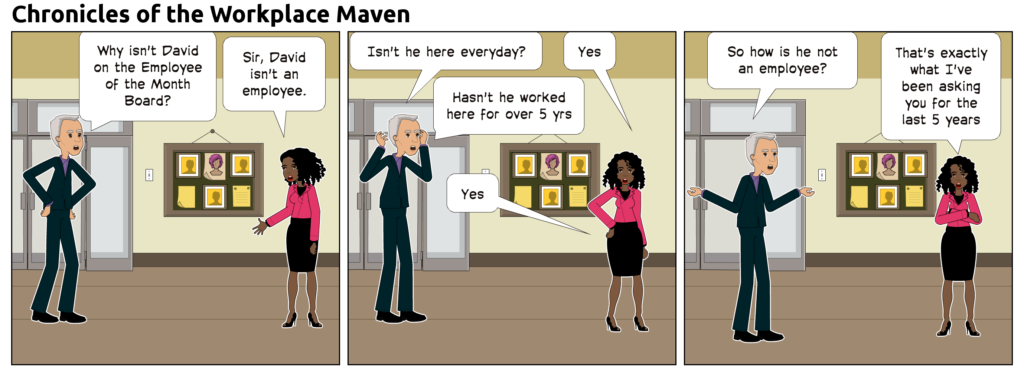Many small businesses rely on using independent contractors, better known as (1099’s) because it saves the business from having to satisfy taxes or fringe benefit requirements related to someone being an employee. But, it’s important to classify those that perform work for your business correctly because if you classify someone as a contractor when they really are an employee, you open your business up to significant fines and penalties. Here are 6 signs that your contractors may really be employees.
1. You Define the When, Where & How – Do you exercise a significant amount of control over how the individual will perform his or her work? Are they required to be at you place of business at a set time for a set number of scheduled hours? If your answer to these questions is yes, the worker is more than likely an employee NOT an independent contractor. A true independent contractor will normally set their own hours and decide how and when to get the job done. While it’s fine to have some input on the work being completed, you should not be controlling day-to-day tasks. Only the end-result of their work should be under your control. If you need to determine the way that the work is to be carried out then you really should be classifying them as an employee.
2. They Only Work For You – Unlike employees, independent contractors typically work with multiple clients, and can incur a profit or loss, just like any other small business. If the worker is only working for you and is what is determined to be “economically dependent” on you as an employer, then the worker is likely an employee.
3. You Provide the Equipment and/or Supplies – By the very nature of the word, independent contractors are usually independent businesspeople or professionals and will often times have made a significant investment in the equipment they use. With that said, it would make sense that they would bring their own laptop, lawn mower, paint brush, or whatever tools or equipment they need to get the job done. If you are providing the worker with everything they need to complete the job, then the individual is looking more like an employee than a contractor.
4. You Don’t Receive Invoices – An independent contractor should be treated the same as any other third-party vendor under accounts payable in that payment is contingent upon an invoice being submitted upon the work being performed or project completion. If you are paying your contractor on a normal schedule, just like you pay your employees payroll, that is more indicative of the worker being an employee.
5. There isn’t a Contract – Normally there isn’t a contract in the employer/employer relationship. In fact, most employer policies go out of their way to stress that handbooks and other policy documents do not create a contractual relationship with the employee. While the existence of an Independent Contractor Agreement by itself isn’t enough to make a worker an independent contractor, having one that spells out the work to be performed and how much you’re going to pay demonstrates an intention to establish a contractor relationship and not one of employer/employee.
6. They Perform Core Business Services – Independent Contractors normally are meant to provide supplemental services to your business but not the core function of your business. For example, If you have a plumbing company and you hire someone to do plumbing which is the primary function of your business, it will be difficult for you to justify classifying them as a contractor. In the alternative, if you’re that same plumbing company but hire a worker to design your website, that’s not a core business service for your business and the individual as likely an independent contractor.
A note of caution, just because someone signs an independent contractor agreement, pays for their own supplies and is issued a 1099 form doesn’t necessarily mean that you are safe in classifying them as an independent contractor. The rules surrounding whether someone performing work for your business is an employee or independent contractor are complicated and require a complete analysis based on the applicable law. If you’re not sure whether your workers are classified correctly, we can help! Visit thehrhotline.com or contact us at info@thehrhotline.com

